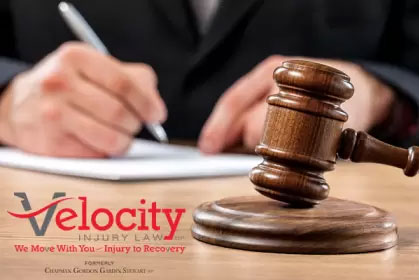Parties Under Disability and Their Protection in Personal Injury Lawsuits

Posted on March 7, 2017

In the context of a personal injury lawsuit, a “party under disability” refers to a minor (someone who is under the age of majority) or to a person incapable of managing their property and/or personal care.
For his or her own legal protection, a plaintiff under disability cannot start or continue a personal injury lawsuit unless a “litigation guardian” is in place on the plaintiff’s behalf.In essence, the litigation guardian “steps into the shoes of the plaintiff” throughout the lawsuit, doing anything that the plaintiff would be required or authorized to do if not under disability. The same lawyer represents both the plaintiff and the litigation guardian.
Sometimes, the plaintiff’s litigation guardian is court-appointed; but usually, the litigation guardian is the plaintiff’s responsible and trusted family member or friend.As the plaintiff’s “voice”, the litigation guardian participates in every step of the lawsuit. For example, the litigation guardian accepts (or rejects) the lawyer’s advice; can be examined for discovery; and “gives the ok” when it comes to settlement of the plaintiff’s case. Whenever the lawyer requires client input, he or she seeks this input from the litigation guardian instead of the injured party. At trial, the litigation guardian can even testify on behalf of the plaintiff under disability.
The Ontario Rules of Civil Procedure set out the responsibilities of a litigation guardian. The Rules state, in part, that a litigation guardian “shall diligently attend to the interests of the person under disability and take all steps necessary for the protection of those interests”. If the court believes that a litigation guardian is not acting in the best interests of the plaintiff under disability, the court may remove the litigation guardian and substitute a new one.In other circumstances, the plaintiff who was under disability might cease (stop) to be under disability; for example, he or she might reach the age of majority or recover from a brain injury. If that occurs, the plaintiff’s lawyer needs to obtain an order from the court allowing the action to continue without a litigation guardian.
As an added protection for a plaintiff under disability, the Rules of Civil Procedure also provide that even if the plaintiff’s litigation guardian agrees to the settlement of the plaintiff’s claim, the settlement still has to be approved by a judge. The judge not only must approve the amount for which the plaintiff’s claim has been settled, but he or she must also approve the manner in which the plaintiff’s settlement funds will be managed and dispensed. In the case of a minor, settlement funds are not paid to the plaintiff until he or she turns 18. Until then, the settlement funds remain in a secure, interest-bearing account monitored by the court.
This article is not a substitute for legal advice. If you have any questions, please contact us at 519-946-4300.

In The Community

The lawyers and staff of Velocity Injury Law can often be found out in the community. Whether we are volunteering for charitable organizations, serving as members of local boards, or participating in recreational and fundraising events, we enjoy being actively involved in and giving back to our community.
Read Our News
 Do You Have A Case?
Do You Have A Case?

